PhD Students
Our Health in Our Hands - supporting PhD Students
Robin Vlieger

Robin Vlieger is a PhD candidate with the Research School of Computer Science, ANU, under supervision of A/Prof Hanna Suominen. The focus of his PhD is investigating tests that provide information that can be used in machine learning algorithms for the diagnosis and prediction of disease progression in Parkinson's disease. Robin received his BA (Hons) in Liberal Arts & Sciences from University College Maastricht, Maastricht University in 2014. In 2017 He graduated with a MSc in Cognitive Neuroscience from Maastricht University, writing his thesis on the development of a testing protocol of a motor rehabilitation device for people that suffered a stroke, working closely together with medical doctors and physiotherapists.
Liyuan(Joe) Zhou

Liyuan(Joe) Zhou is a PhD student at the Research School of Computer Science. His study focuses on improving Machine Learning based Natural Language Processing algorithms with few samples under the supervision of A/Prof Hanna Suominen, Prof Tom Gedeon, and Dr Lizhen Qu. Liyuan finished his Master of Computing (Honours) with a topic of Investing Indexing Units for Chinese Web Information Retrieval in 2014 at ANU. He joined the CSIRO DATA61 (previously known as NICTA) as a Research Assistant in 2012. During his research career, Liyuan worked on a wide range of projects that developing algorithms for Web content retrieving, medical records Information Extraction, social networks data crawling, patent classification, genomics sequence classification, eye gaze movement alignment, and sentiment analysis. Liyuan's research is mainly focused on Natural Language Processing and low resource learning.
Alex Sneddon

Alex Sneddon is a PhD candidate within the John Curtin School of Medical Research (JCSMR) at ANU. Her work involves using deep learning and signal processing algorithms to decode RNA sequencing signals generated by Oxford Nanopore Technology's sequencing platforms. The aim is to identify very short regions of RNA known as "microexons" to better understand transcriptional changes in Autism Spectrum Disorder. Prior to starting her PhD in 2020, she worked as a Software Engineer at Saluda Medical and completed a BEng (Biomedical)(Hons I) and BSc (Adv), majoring in Computer Science, at The University of Sydney in 2017.
Nicholas I-Hsien Kuo

Nic I-Hsien Kuo is a third year PhD student studying machine learning under the supervision of A/Prof Hanna Suominen. His area of research relates to developing deep learning theories for recurrent neural networks, and on meta-learning and continual learning for training models on a low resource enviornment. As a member of the Friends of OHIOH, Nic is currently working with the OHIOH team developing data driven machine learning algorithms.
Shridhar Manjunath
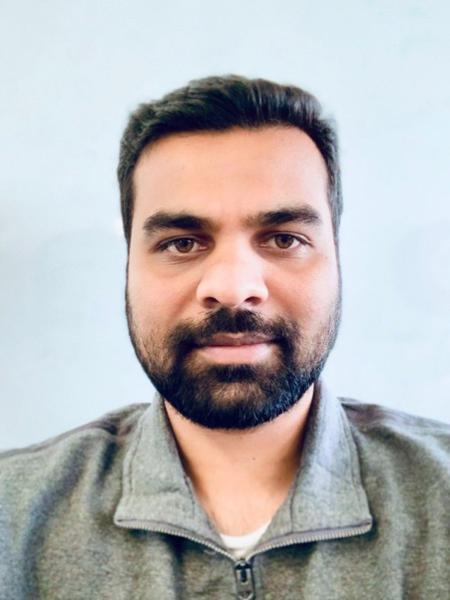
Shridhar Manjunath is a PhD student in the Research School of Physics, ANU, supervised by Professor Dragomir Neshev. He currently works on Our Health in Our Hands (OHIOH) ANU Grand Challenge project: personalised optical sensors based on metasurfaces. His research is mainly focused on the development of optical sensing platforms for point-of-care devices. His current research interests are meta-surfaces, optical sensing, and microfluidics. He completed his Masters in Photonics from Australian National University in 2018. He serves as the President for SPIE student chapter, Vice-president for OSA student chapter at ANU and HDR student representative at RSPhys.
Uthayasuriya Sundaramoorthy

Uthayasuriya Sundaramoorthy is a PhD student, under the supervision of Professor Colin Jackson in the Research School of Chemistry on the Grand Challenge Project: Our Health in Our Hands (OHIOH): Future Personalised Medical Technologies for a Sustainable and Effective Healthcare. She completed her B.SC Biotechnology from Pondicherry University, India in 2012 and M.SC Biotechnology from Bangalore University, India in 2014. She worked as a research assistant at Konkuk University, Seoul, South Korea in (2015-2017) at Protein Engineering Laboratory. During her research assistant position, she worked on the different projects. "w-transaminase and Kinetic Resolution of Racemic Amines using a whole-cell Biocatalyst Co-expressing Amine Dehydrogenase and NADH Oxidase." published in Catalysis. Her PhD mainly focused on designing fluorescent biosensors for the study of diabetes a biomarker for personalized health care.
Chirath Hettiarachchi
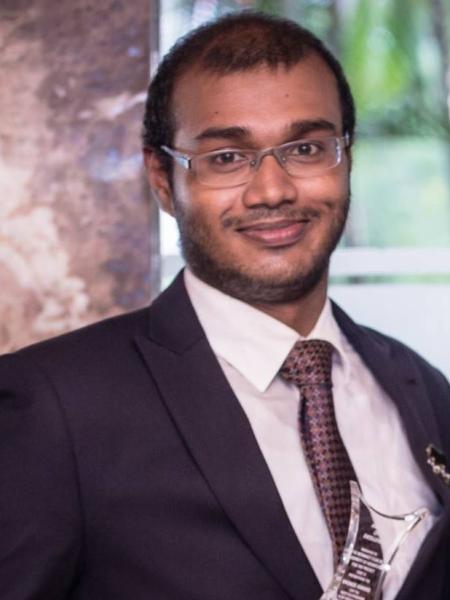
Chirath Hettiarachchi is a PhD student in the Research School of Computer Science, ANU, supervised by A/Prof Hanna Suominen. He currently works on utilising machine learning for control system development in a multiple input artificial pancreas system. Chirath received his BSc (Hons) in Electronics & Telecommunication Engineering in 2018 from the University of Moratuwa, Sri Lanka and has completed his professional qualification in Management Accounting at the Chartered Institute of Management Accountants in 2014 (CIMA-UK). Chirath worked as a Machine Learning Engineer in the FinTech industry from 2018 - 2019, developing algorithms for identifying outliers in corporate financial transactions, forecasting, name screening and risk prediction applications. During the final year of his undergraduate studies, he pursued his entrepreneurial aspirations by co-founding a healthcare startup which achieved multiple awards and publications. He joined the Department of Computer Science & Engineering, University of Moratuwa as a Research Assistant in November 2018, to follow his passion on developing healthcare technologies. His research interests include machine learning, dynamical systems, biomedical signal processing, health informatics and financial data analytics.
Sandaru Seneviratne
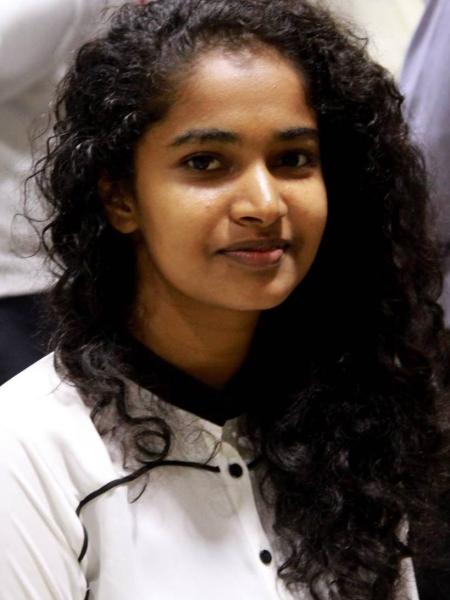
Sandaru Seneviratne is a PhD student in the Research School of Computer Science, ANU, under the supervision of A/Prof Hanna Suominen. She currently works on medical text simplification and ontology learning for diabetes management in a school setting utilising natural language processing and machine learning techniques. She received her BSc (Hons) degree in Computer Science & Engineering in 2019 from the University of Moratuwa, Sri Lanka. Sandaru worked as a trainee software engineer in a Research & Development unit in 2017, and in 2019 she worked as a software engineer to develop a stable reservation platform for the travel domain. Her research interests are in the fields of Natural Language Processing, Ontology Learning, and Machine Learning.
Li'An Chen
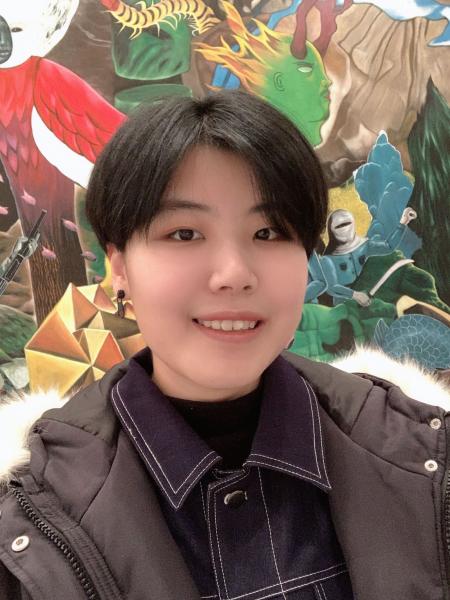
Li'An Chen is a PhD candidate at the Australian National Centre for the Public Awareness of Science (CPAS) at ANU. Her PhD project is about contextualising soft skills required of medical science and computer science PhD graduates who wish to (or have to) work in industries instead of academia. Linguistic analytic skills which she gained from her MA in applied lingsuitics in combination of machine learning techniques allow her to explore job market mysteries from job adverts texts
Shankar Dutt
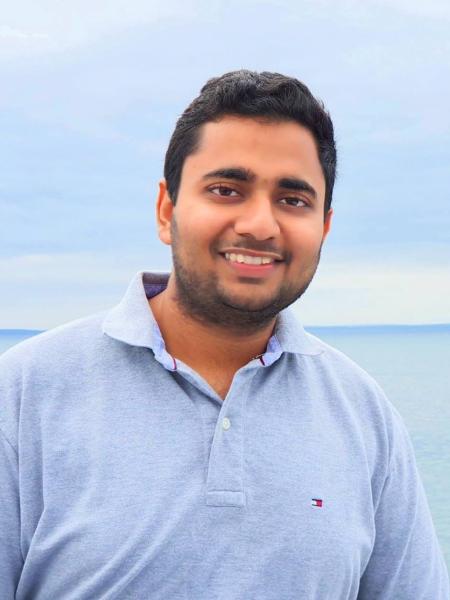
Shankar Dutt joined the Swift Heavy Ion Material Group in October 2018 as a PhD candidate in the Research School of Physics. He is working on the development of novel composite nanopore membranes. Using high-energy ion irradiation and chemical etching provides an industrially compatible technology for the fabrication of extremely small nano-pores in a variety of materials. Combining this technology with 2D materials such as Graphene or ultra-thin film deposition enables the fabrication of nanopore membranes with desired functionalities that can be used in medical and biological sensors, ultrafiltration and lab-on-the-chip applications.
Ran Cui

Ran Cui is a PhD student of the big data group. His research interest is all aspects of machine learning, with an especial focus on deep learning. Ran's main research project in OHIOH is personalised short-term glucose prediction using deep learning based time-series forecasting, for a better management of type 1 diabetes.
Himadri Shekhar Mondal

Himadri Shekhar Mondal started his PhD in December 2019 at The Australian National University. His research includes investigation of plasmonic response, optical characterization and chemical activities of desired nano structures which will provide new insights for developing low-cost scalable self-assembly optoelectronic materials for photonic applications. Currently he is focused on a novel family of functionalized plasmonic materials to develop contactless biosensing devices for noninvasive early stage detection of biomarkers.
Monalisha Ghosh Dastidar
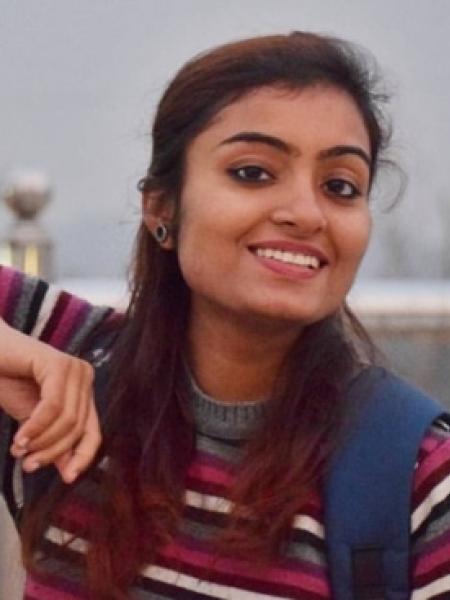
Monalisha Ghosh Dastidar is a new PhD student, under the supervision of Professor Antonio Tricoli in the College of Engineering and Computer Science working on the Grand Challenge: Our Health in Our Hands (OHIOH): Future Personalised Medical Technologies for a Sustainable and Effective Healthcare. She completed her B.Tech in Biotechnology from Vellore Institute of Technology, India in 2017 and M.Tech in Biotechnology from Indian Institute of Technology Guwahati, India in 2019. During her M.Tech, she worked on the project "Design of conducting monomer - nanogold scaffolds and their application in bioelectronics and molecular adsorption". She also worked in Indian Institute of Technology Kharagpur, India as research assistant where she was working on fabrication of electrochemical biosensors for 6 months before joining the Australian National University. Her PhD will be mainly focused on designing electrochemical biosensors for selective detection of miRNA specific to diseases like diabetes, multiple sclerosis, and age-related macular degeneration.
Zain Ul Abideen

Zain Ul Abideen joined the Nanotechnology Research Laboratory in February 2020 as a PhD candidate in the College of Engineering and Computer Science (CECS) at ANU. He is working on Grand Challenge: Our Health in Our Hands (OHIOH): Future Personalised Medical Technologies for a Sustainable and Effective Healthcare. He is particularly interested to develop wearable medical devices for early and continuous detection of diabetes via breath analysis. He has been working as a Product Development Engineer at SukgyungAT. Co., Ltd. (Republic of Korea) for 2 years before joining the Australian National University, where he gained hands-on experience of synthesis of various inorganic nanomaterials for advanced applications. He has received his Master of Engineering degree in Materials Engineering from Inha University, Republic of Korea in 2016 under the supervision of Professor Sang Sub Kim. The title of his Master's Thesis was "Semiconducting Oxide-Graphene Nanocomposite Gas Sensors for Environmental Monitoring and Noninvasive Medical Diagnostics". He completed his Bachelor of Science degree in Materials Engineering from GIK Institute, Pakistan in 2014. He is also interested in Artificial Intelligence, Machine Learning and their implementation in medical devices.
Alishba Tanya John

Alishba Tanya John is a PhD student in the College of Engineering and Computer Science (CECS) working on the Grand Challenge: Our Health in Our Hands (OHIOH): Future Personalised Medical Technologies for a Sustainable and Effective Healthcare. She completed her B. Tech + M. Tech in Nanotechnology (Dual Degree) from Amity University, India in 2019. Her M. Tech project was entitled "Graphene quantum dot-gold hybrid nanoparticles integrated aptasensor for Vitamin D3 detection". She started her PhD in 2020 and is working on the development of a metal-oxide based dual layer chemi-resistive sensor for highly selective detection of different gases.
Marika Niihori
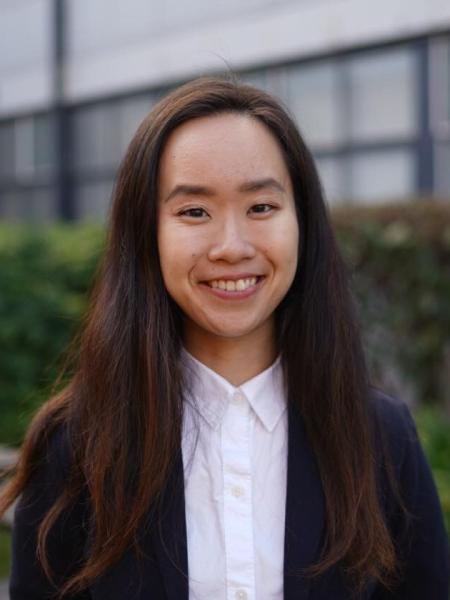
Marika Niihori's research interests focus on understanding the fundamental properties of III-V semiconductor nanowire light emitting diodes for their applications as integrated optical sensors for wearable medical technologies.
Shiyu Wei

Shiyu Wei's research project is about fabrication of high performance III-V semiconductor nanowire array chem-resistors for bio-sensor applications such as medical diagnosis, food safety etc.
Alexander Kiy
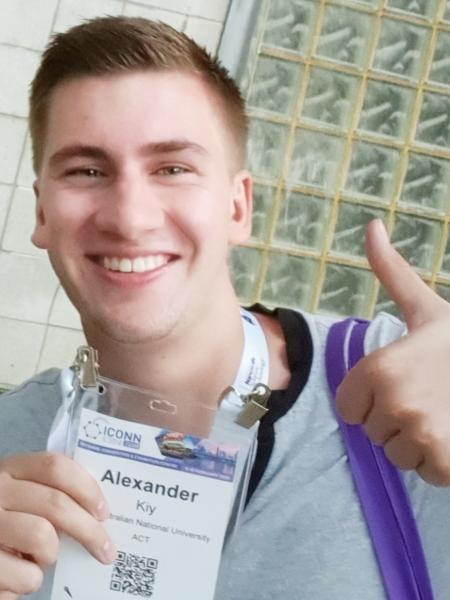
Alexander Kiy started his PhD in April 2019. He is part of the Department of Electronic Materials Engineering (EME) at the Research School of Physics (RSPhys). As a member of the Swift Heavy Ion Material Group, his research is focussed on the design of a novel electro-chemical solid state nanopore sensor for medical applications. During his Master thesis, he has worked on the fabrication and characterisation of nanopore membranes in polymers.